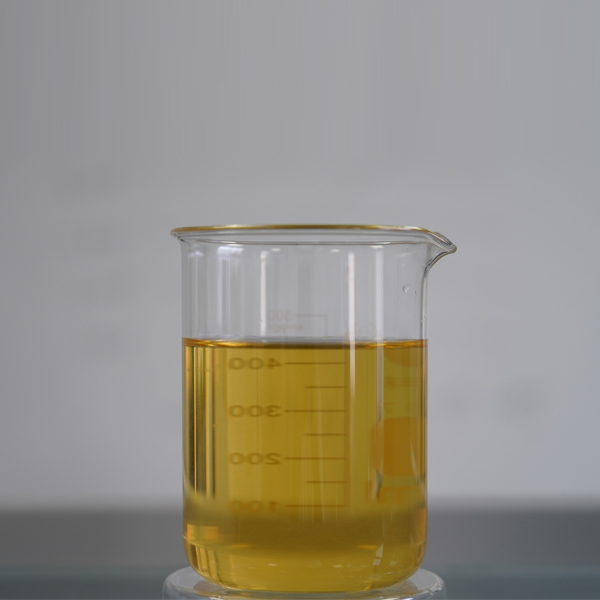
News
nov. . 06, 2024 20:45 Back to list
Essential Micronutrients for Optimal Plant Growth and Development
The Importance of Micronutrients for Plants
Micronutrients are essential components that play a vital role in the healthy growth and development of plants. Although they are required in minute quantities, their impact on plant health and productivity is monumental. This article explores the significance of micronutrients, their functions, and the consequences of deficiencies.
What Are Micronutrients?
Micronutrients are elements that are necessary for the growth of plants, but they are required in much smaller amounts compared to macronutrients like nitrogen, phosphorus, and potassium. The primary micronutrients for plants include boron (B), chlorine (Cl), copper (Cu), iron (Fe), manganese (Mn), molybdenum (Mo), and zinc (Zn). Each of these elements has distinct functions that contribute to the overall health of plants.
Functions of Micronutrients
1. Iron (Fe) Iron is critical for the synthesis of chlorophyll and is involved in various enzymatic processes. It aids in respiration and plays a role in electron transport, which is vital for energy production in plants.
2. Zinc (Zn) This micronutrient is essential for the synthesis of proteins and regulates various metabolic processes. Zinc also plays a role in leaf and stem development, as well as photosynthesis.
3. Manganese (Mn) Manganese is important for photosynthesis, as it participates in the water-splitting reaction that releases oxygen. It also functions as a cofactor for several enzymes involved in nitrogen metabolism.
4. Copper (Cu) Copper is involved in the synthesis of lignin, a compound that strengthens plant cell walls. Additionally, it plays a role in photosynthesis and assists in various enzymatic reactions.
5. Boron (B) Boron is crucial for cell wall formation and membrane integrity. It also influences reproductive processes in plants, such as pollen germination and seed development.
6. Molybdenum (Mo) This micronutrient is essential for the nitrogen fixation process in legumes and is required for the synthesis of certain enzymes that facilitate nitrogen metabolism in plants.
7. Chlorine (Cl) Although its role is less understood compared to other micronutrients, chlorine is believed to be involved in osmosis and photosynthesis, as well as overall plant health.
Consequences of Micronutrient Deficiencies
Deficiencies in micronutrients can lead to a range of health issues in plants
. For instancemicronutrients essential for plants quotes

- Iron Deficiency Characterized by interveinal chlorosis, where the leaves turn yellow between the veins while the veins remain green. This condition can severely affect photosynthesis and overall plant vigor.
- Zinc Deficiency Symptoms include stunted growth and the formation of small leaves, commonly known as “rosetting.” In fruiting plants, it can also lead to reduced crop yields.
- Manganese Deficiency This often presents as spots on leaves or a mottled appearance. It can disrupt photosynthesis and weaken the plant's immune response to diseases.
- Copper Deficiency Symptoms include wilting and an overall reduction in growth, as it affects various physiological processes.
Ensuring Adequate Micronutrient Supply
To maintain optimal levels of micronutrients, farmers and gardeners can employ several strategies
1. Soil Testing Conduct regular soil tests to determine the nutrient status of the soil and to identify any deficiencies.
2. Organic Amendments Incorporating organic matter such as compost can enhance the availability of micronutrients in the soil.
3. Foliar Fertilization Spraying micronutrients directly onto plant leaves can provide immediate correction for deficiencies.
4. Crop Rotation Changing the types of crops planted in a specific area can help manage soil health and nutrient levels.
5. Use of Chelates Applying chelated micronutrients can improve the bioavailability of these nutrients to plants.
Conclusion
Micronutrients may be required in small quantities, but their importance in plant health cannot be overstated. By understanding their functions and ensuring a proper supply, we can promote robust plant growth, enhance crop yields, and contribute to sustainable agricultural practices. As the global demand for food increases, recognizing the role of micronutrients in agriculture becomes increasingly crucial for feeding the world's population.
-
Polyaspartic Acid Salts in Agricultural Fertilizers: A Sustainable Solution
NewsJul.21,2025
-
OEM Chelating Agent Preservative Supplier & Manufacturer High-Quality Customized Solutions
NewsJul.08,2025
-
OEM Potassium Chelating Agent Manufacturer - Custom Potassium Oxalate & Citrate Solutions
NewsJul.08,2025
-
OEM Pentasodium DTPA Chelating Agent Supplier & Manufacturer High Purity & Cost-Effective Solutions
NewsJul.08,2025
-
High-Efficiency Chelated Trace Elements Fertilizer Bulk Supplier & Manufacturer Quotes
NewsJul.07,2025
-
High Quality K Formation for a Chelating Agent – Reliable Manufacturer & Supplier
NewsJul.07,2025
